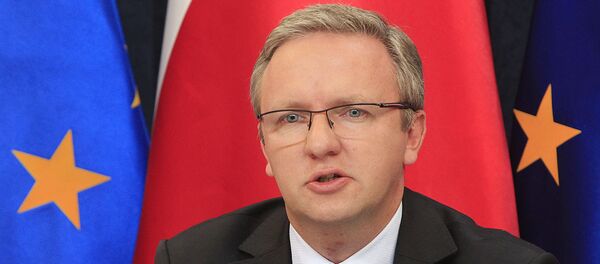On Tuesday, the European Parliament is debating amendments to the Polish Constitutional Tribunal law that raised the alarm within the Polish opposition and Brussels as it allegedly enabled the PiS party to influence the tribunal's decisions. On Wednesday, the Parliament is expected to pass a resolution that urges the European Commission to examine media, counterterrorism and civil service laws passed by the PiS-dominated Polish parliament.
"The people of Poland will just show more support to PiS as pressure from abroad always turns into more support toward the government. The European Commission is right with raising concerns about the rule of law in Poland, but, we, Poles, don't like to be told what to do in our country," Korwin-Mikke said.
"All the EU member states must agree over the punishment. I guess, half of them — with Hungarians at the first place — will not go to the length of it out of fear to make a precedent," the lawmaker suggested.
In late 2015, the Polish authorities adopted a set of controversial media and constitutional court laws, including amendments to the law on the Constitutional Tribunal influencing the independence of its judges, which have been widely criticized both in Poland and abroad. The Constitutional Tribunal recognized the unconstitutionality of new legislation in its March ruling, which the Polish government refused to publish to prevent it from being considered legally binding.
In March, the Council of Europe’s advisory panel, known as the Venice Commission, argued in its report that the law, in combination with other amendments, endangered the rule of law and the democratic system in Poland.
In April, the European Parliament passed a resolution, expressing serious concern about the paralysis of the tribunal, with some EU states threatening to review the bloc's multi-year budget to take some development funds away from Poland or even to strip Warsaw of its voting rights in the European Union.
In the end of July, the European Commission warned Poland that the country had not sufficiently addressed its initial concerns about the Constitutional Court reform and gave Warsaw three months to guarantee the tribunal's independence.





